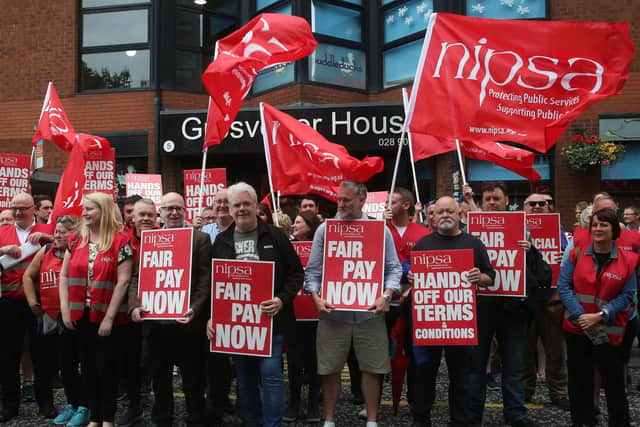Over 16,000 Northern Ireland civil servants begin voting on strike action as ballot opens today
and live on Freeview channel 276
A formal ballot for "co-ordinated" strike action that could involve over 16,000 civil servants opens today and is set to close early next month.
Advertisement
Hide AdAdvertisement
Hide AdA long awaited pay offer was put forward by the Department of Finance early last month following the announcement of a budget by Secretary of State Chris Heaton-Harris in November in the absence of a devolved administration at Stormont.


The Department of Finance admitted last month the offer is "below what staff and unions will expect in a very challenging year for the cost of living".
includes "contractual performance-related progression", and a commitment to increase the pay of the lowest paid staff "to the Living Wage Foundation rates of £10.90 an hour or £21,053 annually".
All eligible other staff, the department say, will receive "a consolidated increase of £552, subject to the detail in the written offer to unions."
Advertisement
Hide AdAdvertisement
Hide AdA spokesperson for the three trade unions, in a statement on Thursday, said: "Unions made clear that the offer is derisory and insulting and with inflation at 10.5% it represents a massive pay cut of more than 8.5%.
“The ballot opens today 9 February and closes on 2 March and all unions expect a significant yes vote for action. Industrial action is likely to commence in mid-March. The serious nature of this situation is reflected in the decision by the trade unions to coordinate their action for the first time. They will also coordinate action with other public and private sector workers taking similar action over pay.”
Carmel Gates, Nipsa general secretary, said: “Our members are angry at how they are being treated. This is a real kick in the teeth for Civil Servants. With inflation in double figures this is a huge pay cut.”
“It is entirely unacceptable to treat workers who were classed as essential workers during the pandemic in this way.”
Any strike by civil servants, at a time when Northern Ireland is without devolved government at Stormont, is likely to cause significant disruption.